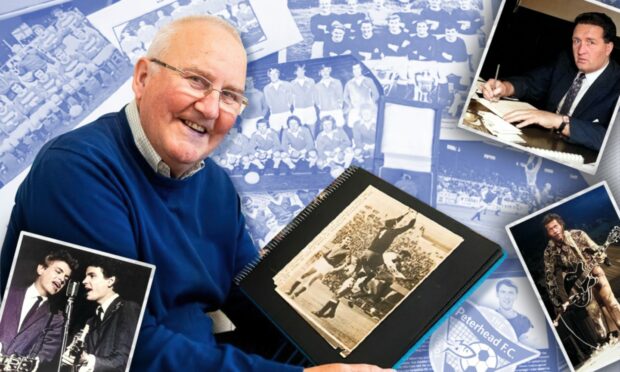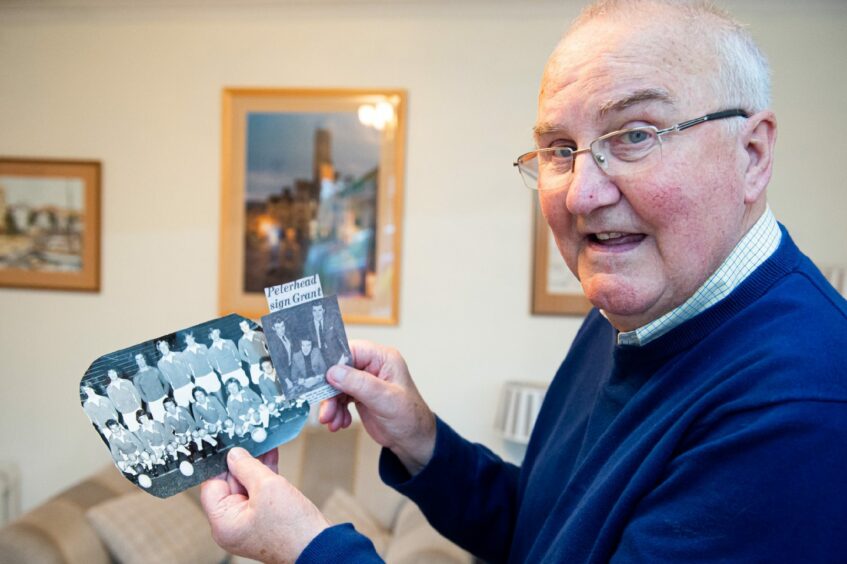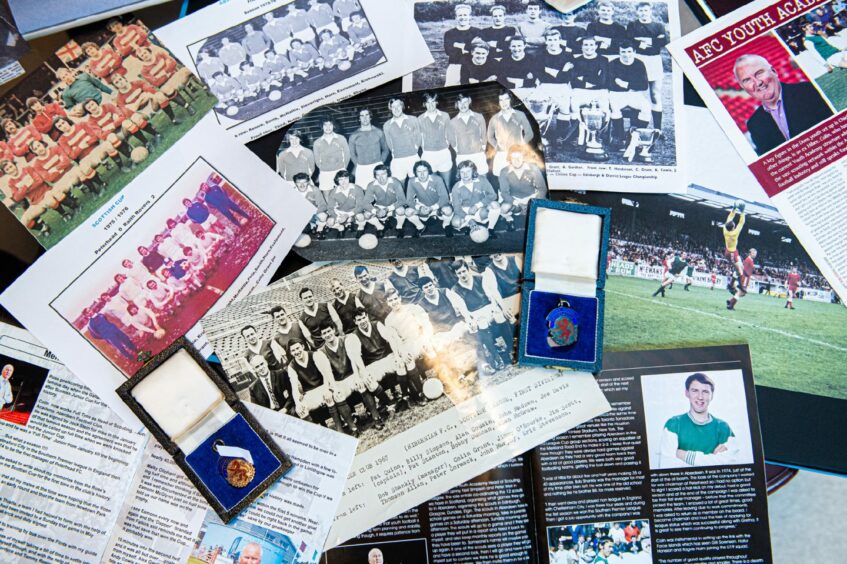There was no shortage of dignitaries with deep pockets when Peterhead FC first brought football to the Blue Toon 130 years ago.
Back in August 1891, a group of local youngsters who had previously played on ‘The Links’ of the north-east community, joined forces, formed a committee and resolved it was time to create a venue for their activities.
The new pitch was quickly christened Recreation Park and its opening that summer was a grand affair. It involved the Provost John Smith being accompanied by Charles Hay, the 20th Lord Earl of Erroll, and US-based, Dunfermline-born philanthropist Andrew Carnegie, whose name has become a byword for vast wealth and charitable investment.
These panjandrums officially opened the facility, much to the delight of the local players, and, as the hours passed, it turned into a gala occasion – and not only for sporting enthusiasts, with the hostelries doing a roaring trade.
This was a day of genuine celebration in Peterhead and it was reported in the Press & Journal that British Rail decided to provide a special 10.30pm train from Peterhead to Maud to take many “merry revellers” home that night.
But there were plenty of other times where Peterhead struggled on the field – and, as Colin Grant’s new book reveals, one of the toughest and most controversial games brought the biggest defeat they have ever suffered.
Ever since he pitched up in the Blue Toon in the 1970s, the 77-year-old has been involved in many different roles as player, manager, vice-chairman and chairman, while he was also a pivotal figure in orchestrating the former Highland League club‘s elevation into the Scottish national structure.
Yet, although his history of the club to which he had dedicated many decades of his life accentuates myriad positive stories from the chronicles, he hasn’t been afraid to discuss the days when things went in the other direction.
And that was certainly the case on a dank winter’s afternoon in 1923: one that chilled the Blue Toon participants to the bone as their rivals ran riot.
Money was in short supply after the First World War, but Peterhead FC soldiered on, their officials never quite sure whether they were on the verge of a windfall or a catastrophe. And, as Grant discovered, it was filthy lucre which played a prominent part in the most embarrassing result in the club’s history.
He said: “In the 1922-23 Scottish Cup, (non-league) Peterhead had twice travelled to Ayrshire and beaten Third Division opponents.
“In the first round, they defeated Beith 1-0 and then, in the second round, they got the better of Galston by the same scoreline to advance, almost unbelievably, to the third round of the national tournament.
Just imagine the excitement in the town when Peterhead were drawn at home to Aberdeen FC. It was even mentioned at the time that the Dons did not fancy their chances against a strong-going Blue Toon team.
“But, knowing all about Peterhead’s financial woes, the news emerged that Aberdeen had made them an offer to switch the game to Pittodrie and give them £300 as an incentive to change the venue.
“I know there is a contradictory version of events in some Aberdeen FC records, which argues that it was actually Peterhead who requested the change of venue first and appealed to Aberdeen with finance in mind.
“But, whatever the truth of the matter, and much to the consternation of the local footballing fraternity, the Peterhead committee agreed to the switch and the players were incandescent with rage.”
These were passionate lads who were proud of their roots and local heritage and believed they could provide the Dons with a real challenge in front of their vociferous supporters at a packed Recreation Park.
Grant said: “At least five of the players refused to play and Peterhead were forced to draft in some Aberdeen University students to make up a team.
“As you can imagine, it was no-contest. Aberdeen were three goals up inside the first 10 minutes of the game and were 5-0 ahead at half-time.
“The match was played on February 10 1923, in torrential rain on a cold afternoon and it was reported that two Peterhead players left the field halfway through the second half, because they were suffering from exposure.
“The score was 13-0 to Aberdeen, the worst result in Peterhead FC’s history.
The book is a labour of love for Colin, a project he embarked upon during lockdown, and he admits he couldn’t have brought it to fruition without the help of his 21-year-old grandson, Cameron Grant, a fourth-year student at St Andrews University.
Understandably, the author has given plenty of prominence to such figures as Martin Bavidge and Jim McInally, while his new work recalls times when George Best spoke at a Peterhead function and Alex Ferguson and Archie Knox did their homework on the Balmoor opposition – who were managed during the 1981-82 campaign by former Dons striker Joe Harper – prior to another less memorable meeting between the north-east sides.
It’s a joy to read. And one suspects it will will be unwrapped as a gift in many households throughout the north-east in a few weeks’ time.
Colin Grant’s history of Peterhead FC, which is raising funds for Alzheimer’s Scotland and the My Name’5 Doddie Foundation, is available on Amazon.


